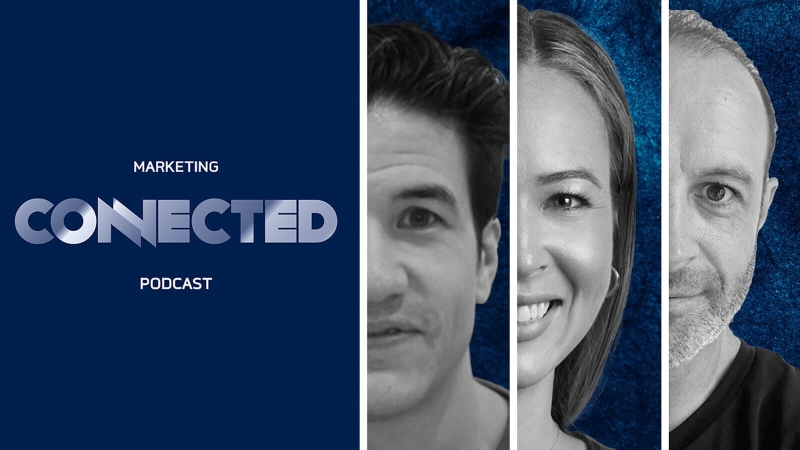NFTs are all the rage these days and its trading volume even jumped during the third quarter of last year to US$10.67 billion, according to a report by analytics platform DappRadar. This marked a 704% increase from the second quarter of last year.
The momentum for NFTs doesn’t seem to be slowing down. Recently, ATLAS Vending launched its NFT vending machine in line with Malaysia Day. It collaborated with 13 local NFT artists to showcase their unique artworks that incorporate local art and culture. Meanwhile, brands including NARS, Chipsmore, Pos Malaysia, Tiger Beer, BINTANG Crystal, Tiffany & Co. have also ventured into this scene. While the industry has seen more brands jump on board the NFT trend, the question remains – what’s next for brands after they have created an NFT? How can they ensure the longevity of their foray?
In this latest podcast episode, MARKETING-INTERACTIVE spoke to Robby Yung (pictured left), CEO of Animoca Brands; Avery Akkineni (pictured centre), president of Vayner3; and Shannon Dix (pictured right), CMO of Virtually Human on the next steps brands can take when it comes to NFTs
Listen to the podcast episode here.
MARKETING-INTERACTIVE: What led to the sudden craze in NFTs?
Yung: When you think about how games have been made, the free-to-play model has underlined the economies of games now for the better part of 15 years. And the idea is that people spend money in games to buy stuff. They upgrade their characters and buy weapons. They increase their enjoyment through purchasing things but they don’t actually own those things.
What NFTs enable us to do is give true digital ownership of those property rights to gamers by allowing them to buy those items, which entitles them to do what they like with them. They can trade them sell them, modify them do what they like. Once you give people property rights, you find it’s very difficult to think about what the world was like before then, because it just doesn’t make sense anymore.
The big traction [of NFTs] in mainstream public consciousness was the collectable game NBA top shot from Dapper Labs last year. The NBA is beloved in many countries around the world and has a huge fan base. So I think that the combination of crypto and NBA kind of took off. And then on that basis, people realised why don’t they own the digital collectables that they have been collecting for so long. They then feel that NFTs are cool and perhaps they should be collecting them this way.
MARKETING-INTERACTIVE: What can brands do with NFTs?
Akkineni: If you look at our heritage cans from Budweiser, that actually came out of the insight that a lot of people collect historic Budweiser cans at their houses. That’s something that people passed out across generations, and they already like it. So it’s sort of an existing behaviour. When you look at some of the brands we’re playing in this space, very few of them are doing anything serious. It’s a long-term community-building type of thing and we see a lot of brands jumping in to do a one-time drop for charity, or with varying degrees of success. Some, however, go really well, such as Coca-Cola.
But I think that what you’ll see over the next few months is brands really using this as a long-term brand building play is a way to engage with their communities and create a sort of new sense of community as they walk into the world of Web3.
MARKETING-INTERACTIVE: What happens next after you’ve launched an NFT? How can brands ensure it’s not just a flash in the execution?
Akkineni: Budweiser launched its first NFT programme last November and since then the value of it has like gone up many folds. I think that happens because Budweiser continues to add value to the community. They have a very active and engaged Discord community and the brand managers are in there talking to the community and getting feedback. They’re announcing new perks, doing special merchandise as well as special giveaways during the Super Bowl.
I think those kinds of engagement tactics continue to build up something over the long-term and having that kind of checkpoints, utilities and benefits for holders also allows them to grow their community over time as they’ll have new drops. Budweiser and adidas are probably two very good examples to look at for companies that have started their journey and are bringing their community along with them into this world of Web3 with multiple perks.
Dix: NFTs provide stickiness around utility and value, and not just sustained sort of value, but community value. I think what brands need to continuously think about is where they want to push their objectives. Are they driving more of utility? Are they trying to do more user acquisition because they want to go for a younger audience?
If you’re constantly experimenting with the community, you are assessing “Are we providing enough value? We’ve done the first drop. What are we doing for our second drop?” There’s going to be a constant communication and sometimes it’s a difficult conversation.
If you’re not providing enough value, your community is going to tell you straight away. And that’s the beauty of NFTs. The community has a one-to-one conversation with brands that didn’t really exist before.
So I think that the opportunity for a lot of brands is really thinking about the long-term strategy in the implication of what they want to drive.
Related articles:
East Ventures invest in Web3 gaming and NFT firm Playground
Chipsmore and Monopoly bring NFT twist to virtual board game
Pos Malaysia makes mark in NFT with Malaysia Day stamps
HKTOYCAR partners with Popsible to launch NFTs at marketplace
Cheil partners NFT marketplace CYPHRLY to beef up capabilities
Commercial test to brand building: How Johnnie Walker’s NFT foray came about
Interview: More than a one-off project, AEON turns classic Malaysian moments into NFTs

